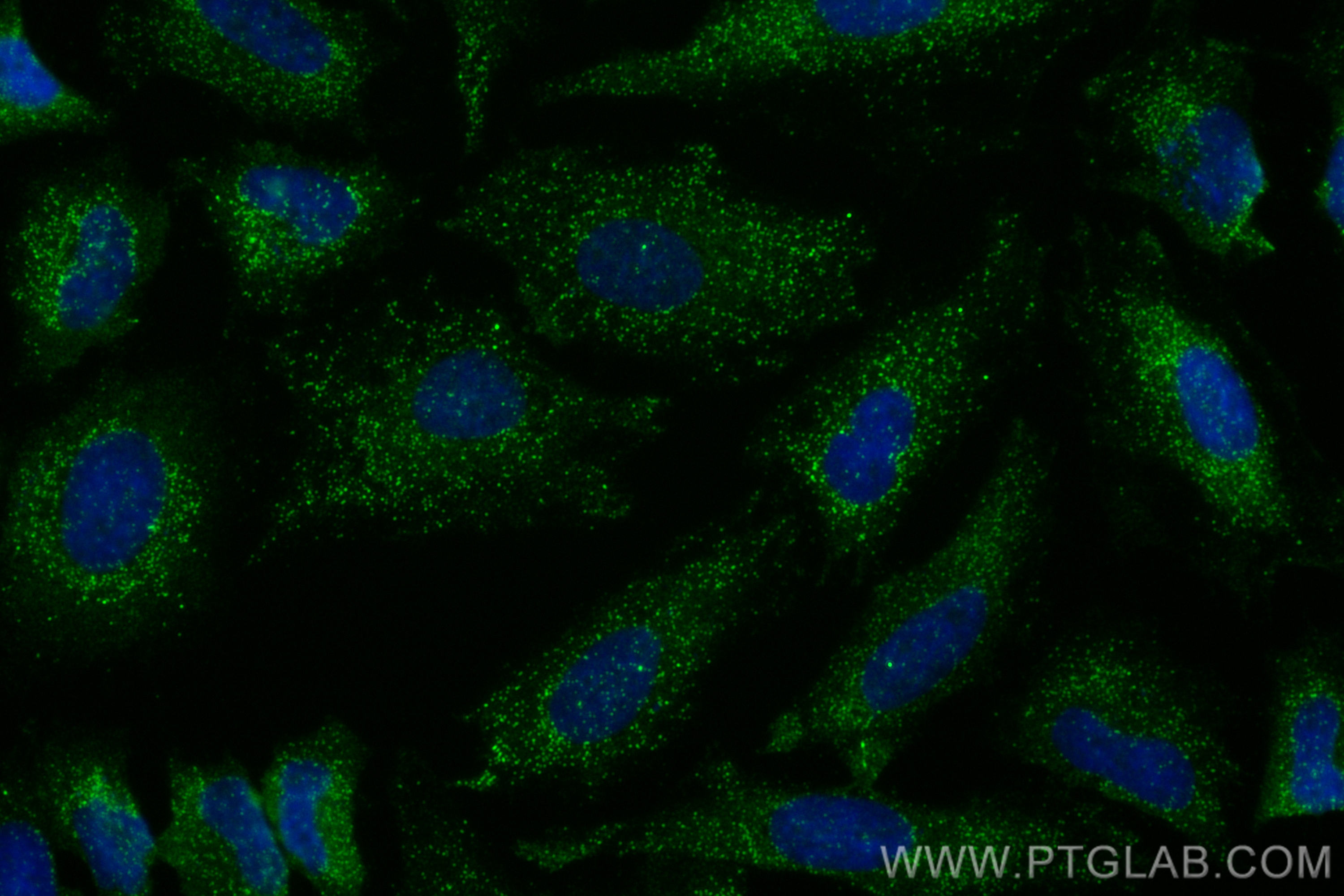验证数据展示
经过测试的应用
| Positive IF/ICC detected in | HeLa cells |
推荐稀释比
| 应用 | 推荐稀释比 |
|---|---|
| Immunofluorescence (IF)/ICC | IF/ICC : 1:50-1:500 |
| It is recommended that this reagent should be titrated in each testing system to obtain optimal results. | |
| Sample-dependent, Check data in validation data gallery. | |
产品信息
CL488-68315 targets EXOSC10 in IF/ICC applications and shows reactivity with human samples.
| 经测试应用 | IF/ICC Application Description |
| 经测试反应性 | human |
| 免疫原 | EXOSC10 fusion protein Ag28587 种属同源性预测 |
| 宿主/亚型 | Mouse / IgG1 |
| 抗体类别 | Monoclonal |
| 产品类型 | Antibody |
| 全称 | exosome component 10 |
| 别名 | RRP6, PM/Scl-100, P100 polymyositis-scleroderma overlap syndrome-associated autoantigen, Exosome complex component 10, EC:3.1.13.- |
| 计算分子量 | 98 kDa |
| 观测分子量 | 98 kDa |
| GenBank蛋白编号 | BC039901 |
| 基因名称 | EXOSC10 |
| Gene ID (NCBI) | 5394 |
| RRID | AB_3672994 |
| 偶联类型 | CoraLite® Plus 488 Fluorescent Dye |
| 最大激发/发射波长 | 493 nm / 522 nm |
| 形式 | Liquid |
| 纯化方式 | Protein G purification |
| UNIPROT ID | Q01780 |
| 储存缓冲液 | PBS with 50% glycerol, 0.05% Proclin300, 0.5% BSA , pH 7.3 |
| 储存条件 | Store at -20°C. Avoid exposure to light. Stable for one year after shipment. Aliquoting is unnecessary for -20oC storage. |
背景介绍
About 50% of patients with polymyositis/scleroderma (PM-Scl) overlap syndrome are reported to have autoantibodies to a neuclear/nucleolar particle termed PM-Scl. Exosome component 10 (EXOSC10), also named autoantigen PM/Scl 2, is the 100 kDa antigen component of PM-Scl and is recognized by most sera of PM-Scl paitents. EXOSC10 is strongly enriched in the nucleolus and a small amount has been found in cytoplasm supporting the existence of a nucleolar RNA exosome complex form. As a putative catalytic component of the RNA exosome complex which has 3'->5' exoribonuclease activity, EXOSC10 participates in a multitude of cellular RNA processing and degradation events.
实验方案
| Product Specific Protocols | |
|---|---|
| IF protocol for CL Plus 488 EXOSC10 antibody CL488-68315 | Download protocol |
| Standard Protocols | |
|---|---|
| Click here to view our Standard Protocols |
